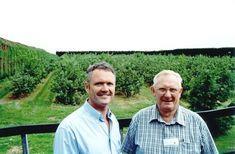
English Bramley growers are at last fighting back against cheap processed fruit from Northern Ireland, according to Philip Acock, managing director of Fourayes, the largest supplier to the food-manufacturing sector. “The tide is beginning to turn,” he said.
Faced with a crop that looks reasonable even before the June drop, Acock added: “We see a fairly prosperous future and radical growth over the next 18 months.”
In the last seven years, Fourayes Kent factory has seen investment of more than £1.75 million and the company has diversified beyond sliced and diced fruit.
Last week it announced a £1m contract to manufacture mincemeat-- of which Bramley is a major ingredient - and plans to spend £250,000 on upgrading its peeling line. Fourayes also has its own ultra low oxygen storage facility and is trialing SmartFresh ethylene inhibitors, which if successful will be adopted next year.
The company is a substantial grower in its own right, with 100 acres of fruit. Its current production potential is 1,000 tonnes, which could rise to 1,600t as new orchards mature. Combined with fruit brought in from other Kentish growers, Acock expects to handle over 7,000t this year, or 13 per cent of the total UK crop.
“UK growers serving the processing industry have to make a ‘foot-of-the-ladder’ price of between £150-£160 a tonne,” said Acock. “But profitability also depends very much on yield, and we believe at this price level we would have a sustainable industry long term.”



